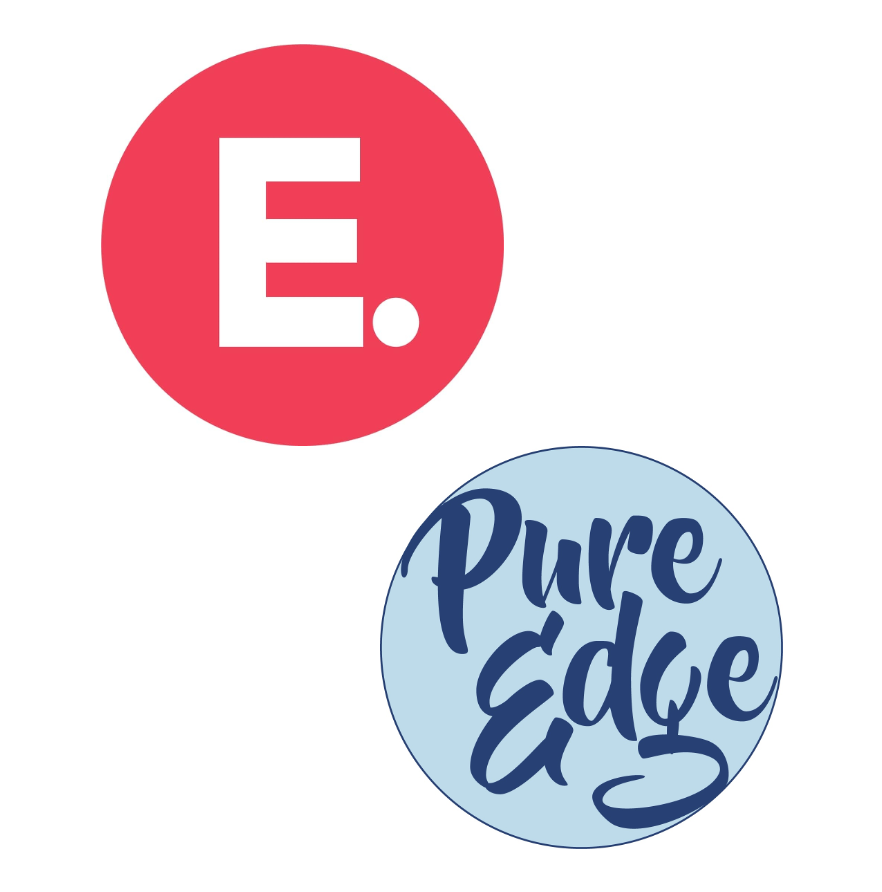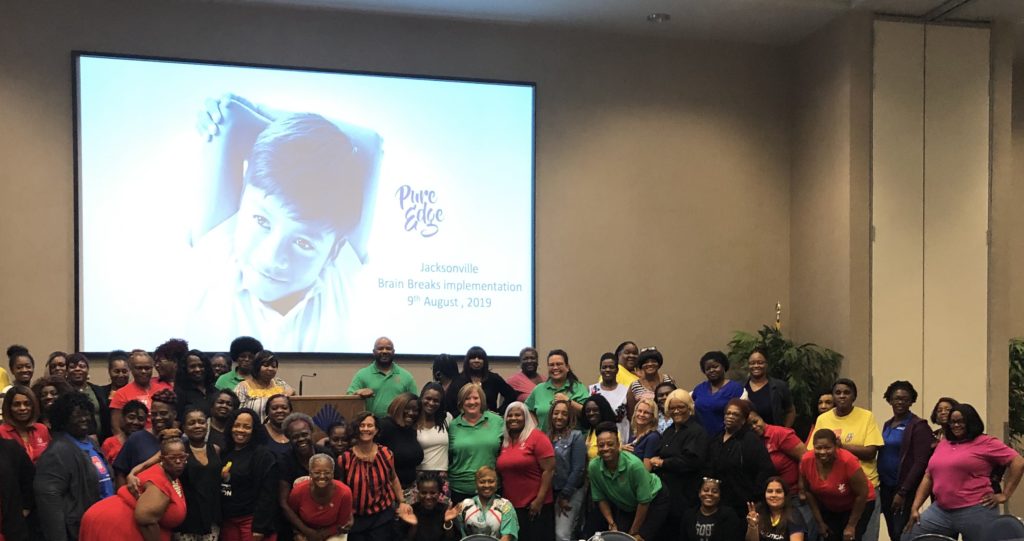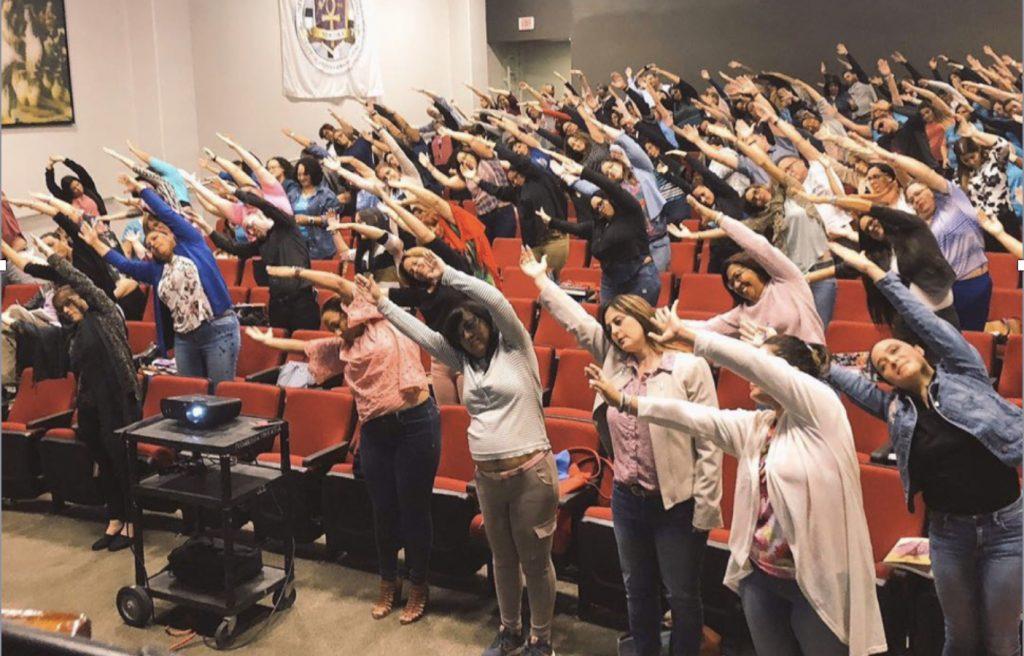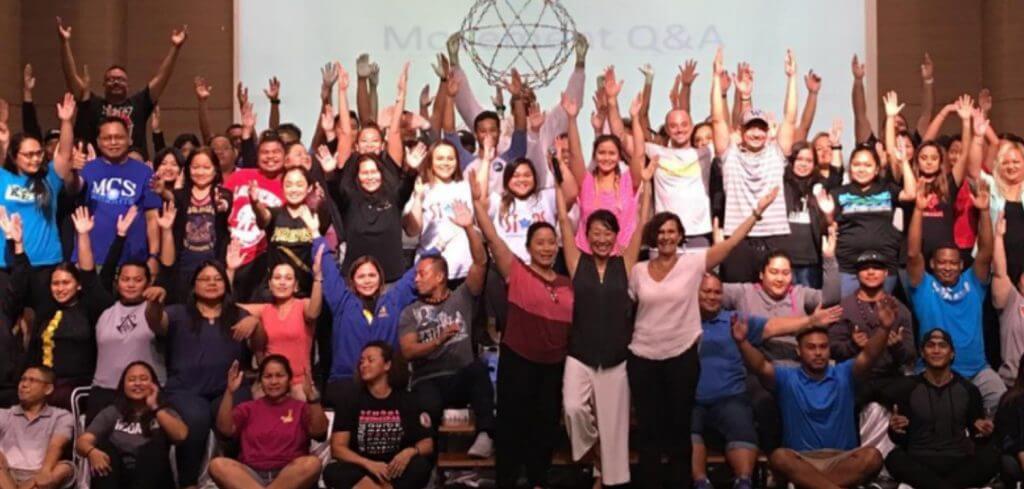An Inspiring New Partnership with Empatico

Pure Edge, Inc. is excited to partner with Empatico, a nonprofit organization that connects K-12 classrooms around the world, with a mission to empower school-aged students to form meaningful connections that foster a more empathetic world. The organization’s vision is to be the leading classroom connector worldwide. Pure Edge shares those core values of compassion […]
Lutheran Services Florida: Saving Jacksonville’s Head Start Program and Strategizing to Transform Its Culture

LSF Duval has partnered with Pure Edge to build on its Head Start program’s incredible turnaround. Five years ago, no one would have believed that the Head Start program in Jacksonville, Florida, would one day receive a glowing write-up from the New York Times or a feature on NBC Nightly News. A visit from federal […]
With Teri Lawler as a Champion, Delaware Commits to Trauma Awareness in Schools and Beyond

The Delaware Department of Education is taking on trauma state-wide through partnerships with organizations like Pure Edge, and Teri Lawler is at the helm. A decade ago, while Teri B. Lawler was working in one of Delaware’s most vulnerable zip codes, a student told her he had seen a body in the street on his […]
Puerto Rico Department of Education (PRDE)

Location: Puerto Rico Potential Impact: 29,000 teachers, 75,000 total staff, 380,000 students Website: www.de.pr.gov Reeling from the aftermath of Hurricane Maria and still suffering from a lack of resources, Puerto Rico became a vital territory for Pure Edge to support. We partnered with the PRDE in July 2018. In 2017, legislation, Law 85, passed […]
Commonwealth of the Northern Mariana Islands (CMNI): Saipan

Location: Saipan, Northern Mariana Islands Potential Impact: 400 teachers, 800 total staff, 10,000 students Website: https://www.cnmipss.org/ In September 2018, we received a heart-rending email from a school counselor in Saipan, the largest island in the U.S. commonwealth of the Northern Mariana Islands. She sought Pure Edge’s help for Saipan’s students, emphasizing that being an […]


